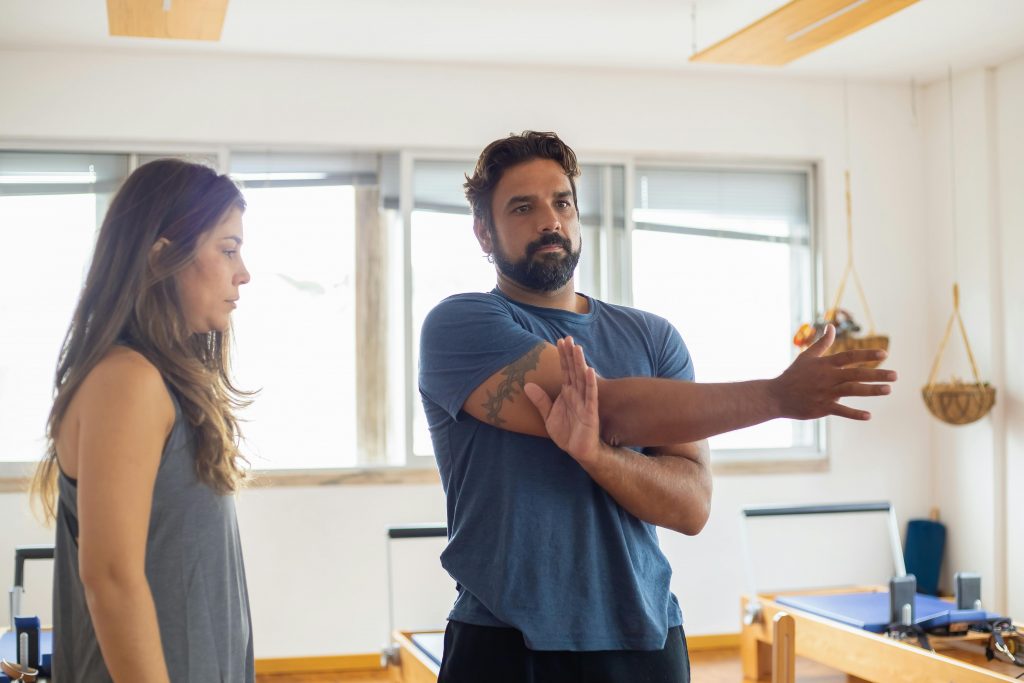- Recognize pain vs. discomfort; consult health professionals and heed the body’s recovery signals for safe healing.
- Incorporate balanced nutrition, emphasizing proteins, complex carbs, and micronutrients for muscle repair and immune support.
- Seek experts for tailored rehab plans; physical therapy and advanced treatments can enhance healing.
- Use mental health strategies and support networks to navigate recovery’s psychological impacts positively.
- Gradually resume activity, aligning with your body’s readiness, to prevent re-injury and bolster athletic resilience.
As an athlete, there’s no denying that injuries and mishaps are a part of the game. However, how you bounce back from these setbacks can make all the difference in your performance and overall health.
This blog post will discuss strategies for optimizing athletic resilience and ensuring recovery from sports mishaps. Whether you’re a seasoned athlete or just starting, these tips will help you stay physically and mentally strong.
Listen to Your Body
Listening to your body is one of the most important aspects of recovering from a sports mishap. If something doesn’t feel right, don’t push through the pain. Rest and allow your body to heal naturally. Ignoring warning signs can lead to further injury and prolong your recovery time.
Discomfort and Pain
Recognizing the difference between discomfort and pain is crucial when overcoming sports-related injuries. Discomfort can often be a natural part of athletic training and growth. But pain is a clear signal from your body that demands attention. Always consult with a healthcare professional to assess the severity of your injury.
Body Signs During Recovery
Besides professional advice, pay attention to your body’s signs during recovery. Adequate sleep, proper nutrition, and hydration are key factors that support healing, and help signal when it’s safe to gradually reintegrate into your training regimen. Remember, the body’s feedback is invaluable in returning to peak performance.
Proper Nutrition

Fueling your body with the right nutrients is essential for optimal recovery. Ensure you’re getting enough protein to support muscle repair and plenty of fruits and vegetables for vitamins and minerals. Hydration is also crucial in helping your body recover faster.
Complex Carbohydrates
In addition to protein and a broad spectrum of fruits and vegetables, it’s critical to incorporate complex carbohydrates into your diet. These provide a sustained energy source necessary for healing and training and aid in rebuilding glycogen stores depleted during physical exertion. Foods rich in omega-3 fatty acids, such as salmon and flax seeds, can help counteract inflammation, a common response to injury.
Vital Components
Lastly, micronutrients like zinc, vitamin C, and vitamin D are essential in tissue repair and immune function, making them vital components of an athlete’s recovery nutrition plan. Remember to tailor your nutritional intake to your specific needs, activity levels, and recovery status, and consider consulting a sports dietitian for personalized advice.
Physical Therapy

Working with a physical therapist can be incredibly beneficial in recovering from sports mishaps. They can help you regain strength and mobility through targeted exercises and stretches. A good physical therapist will also guide you in preventing future injuries.
Consult Specialists
Don’t shy away from seeking out specialists like sports medicine doctors and orthopedic surgeons. They can provide valuable insights into your injury and help you develop a comprehensive recovery plan. For instance, you should look for a clinic specializing in reliable sports injury treatments. This technique and other cutting-edge therapies can help expedite your recovery process and get you back on track sooner.
Mental Health
Don’t underestimate the importance of mental health in recovering from sports mishaps. Dealing with an injury or setback can be frustrating and demoralizing, but maintaining a positive attitude is crucial for a successful recovery. Consider working with a sports psychologist to help you navigate the mental aspect of healing.
Coping Strategies
Developing effective coping strategies is an integral part of maintaining mental health during recovery. Techniques such as mindfulness, meditation, and visualization can reduce stress and anxiety and foster a mindset conducive to healing. Affirmations and goal setting can keep motivation high, serving as reminders of what can be accomplished beyond the recovery period.
Support Systems
Furthermore, it’s beneficial to tap into your support systems, including family, friends, and teammates, who can offer moral support and assist you during rehabilitation. Sharing your experiences with others who have faced similar challenges can provide comfort and insights that contribute to a more positive outlook.
Gradual Return to Activity
Once you’re cleared by medical professionals to return to activity, it’s important to ease back into training slowly. Rushing back into full-intensity workouts can increase your risk of re-injury. Listen to your body and pay attention to any lingering pain or discomfort.
Incremental Progression
A gradual return to activity should focus on incremental progression that aligns with your body’s healing process. Begin with low-impact exercises and gradually introduce more demanding workouts as your strength and flexibility improve. Consider incorporating activities that mimic the movements of your sport without the same level of intensity or impact.
Optimizing athletic resilience is about more than just physical recovery – it’s about holistically taking care of your body, both inside and out. By listening to your body, fueling it with proper nutrition, seeking guidance from physical therapists and sports psychologists, and gradually returning to activity after a sports mishap, you can ensure complete recovery while building mental toughness for future challenges on the field or court. Remember that setbacks are a natural part of being an athlete, but how you respond to them can make all the difference in reaching your full potential.